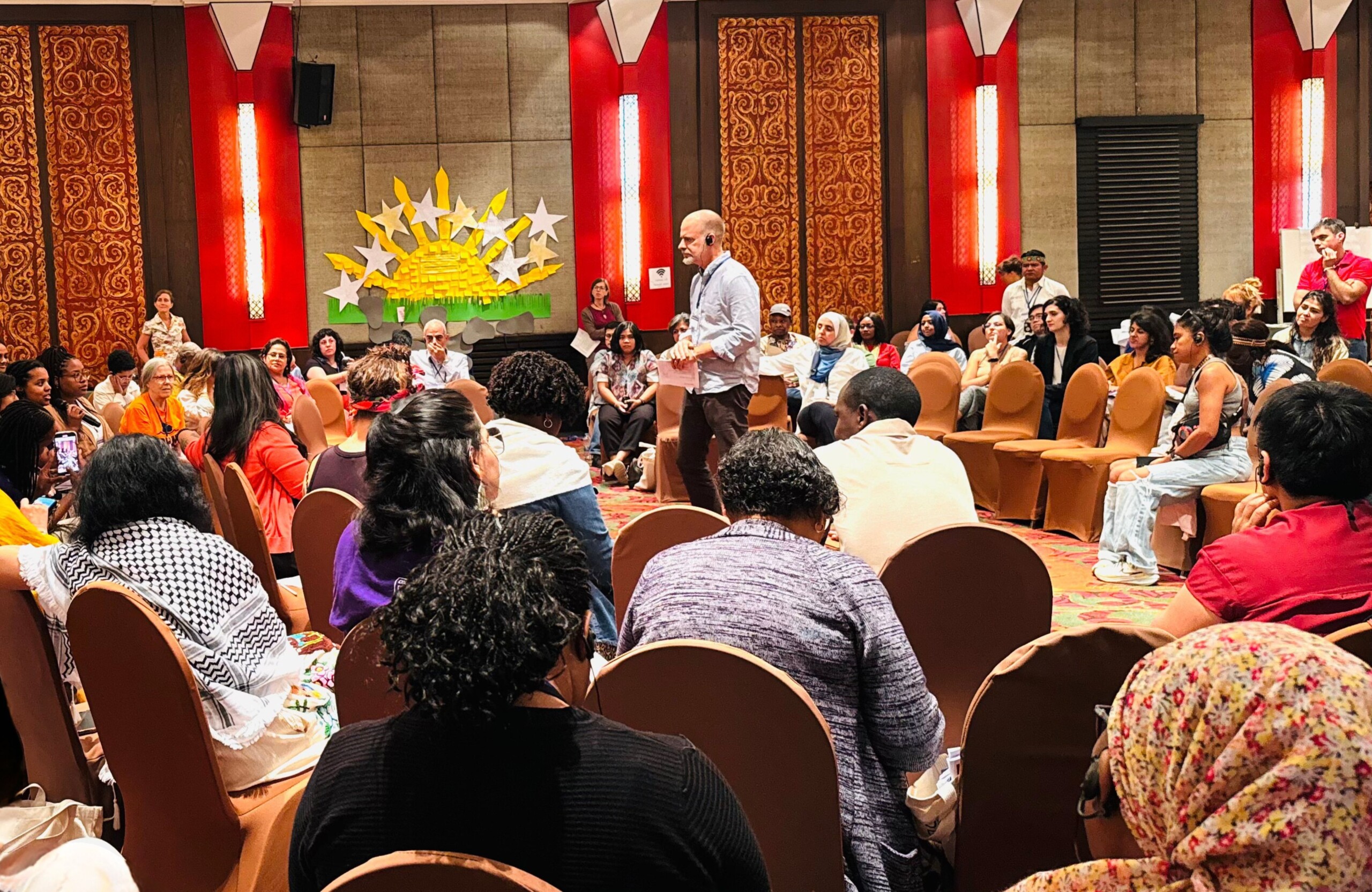February, 2025
To the Environmental Authorities of Colombia.
Subject: Urgent Call for Support and Intervention Regarding Mining Title Decisions in Tolima, Colombia
We the undersigned write to express our grave concerns regarding the decisions of the Agencia Nacional de Minería (ANM) to grant mining titles in Coyaima, Chaparral, San Luis (Payandé), Valle del San Juan, Saldaña, Natagaima, Falan, Cajamarca and other municipalities in the Tolima department of Colombia.
These decisions have profound implications for the fundamental rights of Indigenous and campesino communities, whose economic sustenance and cultural identity are intrinsically linked to the ecological balance and sustainability of these territories. The ANM’s actions appear to prioritize technical, legal, economic, and environmental considerations without adequately accounting for critical issues such as:
- The agricultural vocation and ecological integrity of these territories;
- The self-determination and the importance of spirituality for indigenous peoples on the care of water systems, soils and mountains, air and energy, in the reproduction of their culture; and
- The broader social, cultural, and environmental impacts on the communities involved.
Furthermore, we are deeply concerned about the misuse of Public Mining Hearings as superficial mechanisms for participation. These hearings do not comply with the standards of free, prior, and informed consent (FPIC) established by Colombia’s Law 21 of 1991 and International Labour Organization (ILO) Convention 169. This non-compliance undermines the rights of Indigenous peoples to meaningful participation in decisions that affect their territories.
We find it critical that the government advances in the implementation of the Escazú Agreement to address the high levels of socio-environmental conflict caused by excessive mining concessions.
According to data from the NGO Global Witness, Colombia has the highest rates of killings of land and environmental defenders in the world. It is urgent to implement measures that guarantee the rights of access to information, participation, and environmental justice, ensuring the protection and fulfillment of the rights of affected communities.
We encourage the Colombian government to fulfill its commitment expressed at the recent COP16 on Biodiversity by promoting Peace with Nature and addressing the just demands of socio-environmental movements in the department of Tolima and throughout Colombia.
These hearings do not comply with the consultation standards required under Colombia’s Law 21 of 1991 and ILO Convention 169, nor do they meet the standard of free, prior, and informed consent (FPIC) as affirmed in the UN Declaration on the Rights of Indigenous Peoples (UNDRIP) and the International Covenant on Economic, Social and Cultural Rights (ICESCR). Specifically, Article 1 of the ICESCR emphasizes the right of peoples to self-determination and to freely pursue their economic, social, and cultural development. Furthermore, Article 12 of the ICESCR guarantees the right to a healthy environment as an integral part of the highest attainable standard of physical and mental health.
We join Comité Ambiental en Defensa de la Vida y el Agua and the affected communities in urging the ANM and relevant authorities to:
- Immediately suspend the viability of mining projects until comprehensive and genuine FPIC processes are conducted;
- Integrate cultural, spiritual, and socioeconomic criteria in the evaluation of all mining projects;
- Ensure participatory processes are free from manipulation and uphold the principles of transparency and equity.
We respectfully request your support in amplifying this issue and joining efforts to demand a more holistic and rights-based approach to natural goods management. By ensuring that the decisions affecting these communities are guided by their rights and needs, we can collectively uphold the principles of justice, equity, and sustainability.
Thank you for your attention and commitment to this cause. We remain available for further dialogue and collaboration to address this urgent matter.
Sincerely,
Signed:
- A 11 – Initiative for Economic and Social Rights, Serbia
- Accountability Counsel, USA
- Alliance for Rural Democracy (ARD), Liberia
- ALTSEAN-Burma, Thailand
- Anti-Jindal & Anti-POSCO Movement (JPPSS), India
- Asia Indigenous Peoples Pact, Thailand
- Asociación de Pequeños y medianos ganaderos de Chaparral, Colombia
- Buffalo Human Rights Center, University at Buffalo School of Law, USA
- Centre for Human Rights and Development, Mongolia
- Colectiva ExpresArte, Colombia
- Comité Ambiental en Defensa de la Vida, Colombia
- Comité de Solidaridad con los Presos Políticos, Colombia
- CONASUD, Argentina
- Confederación Campesina del Perú, Perú
- Consejo de Pueblos Wuxhtaj (Hermanos), Guatemala
- Due Process of Law Foundation, Regional
- Elseidi Law Firm, Egypt
- Endorois Welfare Council, Kenya
- Federación Colombiana de Educadores (FECODE), Colombia
- Fuerza Común Tolima , Colombia
- Fundación Barranquilla+20, Colombia
- Fundación Promoción Humana, Argentina
- Human Rights Awareness Center, Nepal
- International Accountability Project, Global
- International Women’s Rights Action Watch Asia Pacific (IWRAW AP), Malaysia
- Katribu Kalipunan ng Katutubong Mamamayan ng Pilipinas, Philippines
- Kisora, Kenya
- Lok Shakti Abhiyan, India
- Manushya Foundation, Thailand
- MUFRAS-32, El Salvador
- NAFSO, Sri Lanka
- Natural Resource Women Platform, Liberia
- Observatori DESCA, Spain
- OFRANEH, Honduras
- Ogoni youth alliance for climate change and sustainable development, Nigeria
- Pax Christi Internacional, Bélgica
- Pueblo Originario Kichwa de Sarayaku, Ecuador
- Snapap/cgata , Algérie
- Uganda Association of Women Lawyers( FIDA- Uganda), Uganda
- UNIÓN DE TRABAJADORAS AFROCOLOMBIANAS DEL SERVICIO DOMÉSTICO, Colombia
- Zimbabwe People’s Land Rights Movement, Zimbabwe
- Amnesty International, Global


